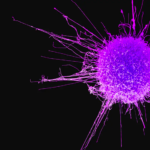“Hygiene, immunization, safe sex, and safe blood transfusion are all harm reduction efforts”
Healthy Soch
New Delhi, February 26, 2019:
India rolled out the National Viral Hepatitis Control Program (NVHCP) last week with the aim of eliminating viral hepatitis. The disease infects and kills more than HIV, malaria and tuberculosis combined. The National Action Plan – Viral Hepatitis was launched in Mumbai by the Union Minister of State for Health and Family Welfare. Viral hepatitis is recognized as an important public health problem across the world.
According to estimates by the WHO, viral hepatitis caused 1.34 million deaths globally in 2015, a number comparable to deaths due to tuberculosis, worldwide. There are about 4 crore people suffering from Hepatitis B in India, and another 0.6 to 1.2 crore people suffering from Hepatitis C.
Speaking about this, Padma Shri Awardee, Dr KK Aggarwal, President, HCFI, said, “It is imperative to not underestimate the threat of hepatitis. More than 80% cases of liver cancer are due to viral hepatitis. Many people are not aware even when they are infected as majority of people doesn’t even know they are infected because symptoms of jaundice such as yellowing of skin, whites of the eye, and urine happen in the later stages of the disease. Both the fatal infections (Hepatitis B and C) spread through contaminated blood and other fluids, with unsafe blood transfusion, tattoos or dental procedures using unsterilized tools, unprotected sex, sharing razor, etc. This further leads to the infection spreading from an infected person to a healthy person. Progression of liver disease is faster in individuals with HIV and viral hepatitis coinfection; also, they may not respond as well to treatment.”
Apart from other measures, the programme will also focus on screening of pregnant women for hepatitis B, in places where institutional delivery is less than 80%, to ensure provision of birth dose hepatitis B vaccination and Hepatitis B immunoglobulin, if required.
Adding further, Dr Aggarwal, who is also the Group Editor-in-Chief of IJCP, said, “Acute hepatitis due to any virus is usually self-limiting and requires a good diet, bed rest and only symptomatic treatment. Urgent hospitalization may be required only in cases of acute liver failure in acute viral hepatitis. One may also need intensive treatment and liver transplant. Chronic hepatitis B and C can be treated with antiviral drugs both oral and injectable. Hepatitis C virus (HCV) is curable now and HBV can be controlled with medication. The vaccine is available for hepatitis A virus and HBV only.”
Some harm reduction tips from HCFI
- Maintain quality standards for public water supplies
- Establish proper disposal systems for human feces
- Maintain hygienic practices such as handwashing with safe water, particularly before handling food
- Avoid consumption of water and/or ice of unknown purity
- Get immunized at regular intervals as advised
- Safe blood transfusion
- Safe injection
- Test any donated blood for hepatitis B and C
- Indulge in safe sex and promote correct and consistent use of condoms







